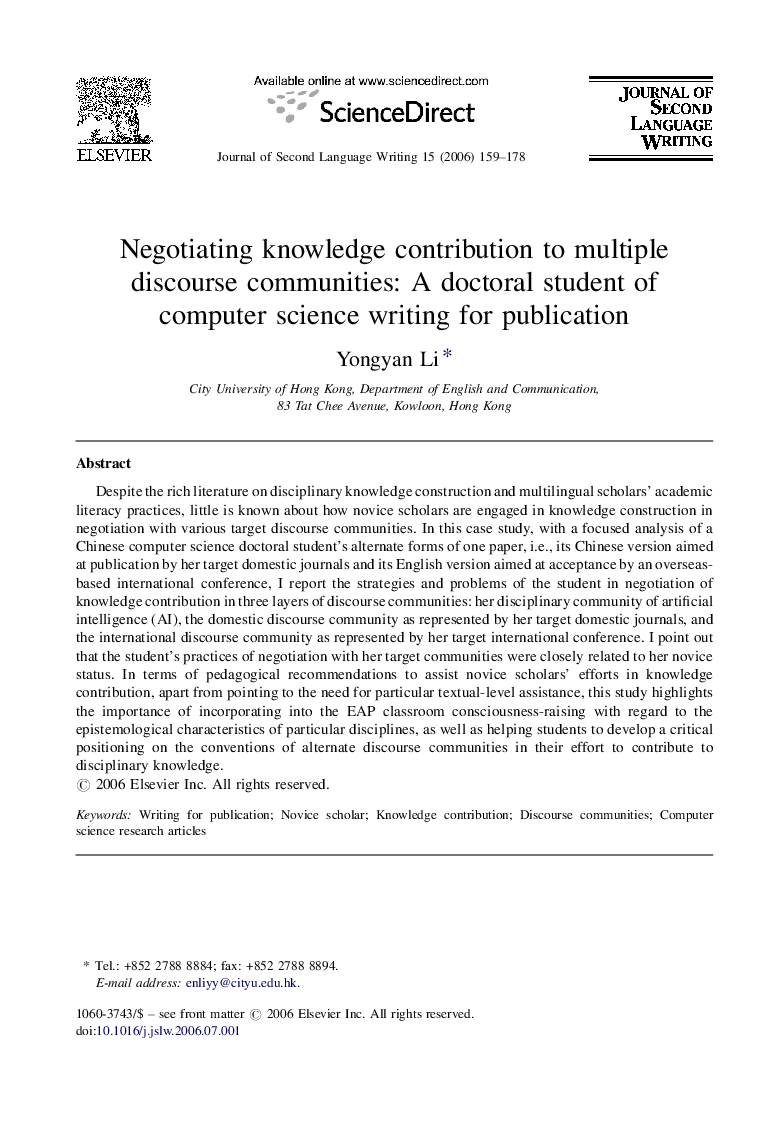| Article ID | Journal | Published Year | Pages | File Type |
|---|---|---|---|---|
| 364287 | Journal of Second Language Writing | 2006 | 20 Pages |
Despite the rich literature on disciplinary knowledge construction and multilingual scholars’ academic literacy practices, little is known about how novice scholars are engaged in knowledge construction in negotiation with various target discourse communities. In this case study, with a focused analysis of a Chinese computer science doctoral student's alternate forms of one paper, i.e., its Chinese version aimed at publication by her target domestic journals and its English version aimed at acceptance by an overseas-based international conference, I report the strategies and problems of the student in negotiation of knowledge contribution in three layers of discourse communities: her disciplinary community of artificial intelligence (AI), the domestic discourse community as represented by her target domestic journals, and the international discourse community as represented by her target international conference. I point out that the student's practices of negotiation with her target communities were closely related to her novice status. In terms of pedagogical recommendations to assist novice scholars’ efforts in knowledge contribution, apart from pointing to the need for particular textual-level assistance, this study highlights the importance of incorporating into the EAP classroom consciousness-raising with regard to the epistemological characteristics of particular disciplines, as well as helping students to develop a critical positioning on the conventions of alternate discourse communities in their effort to contribute to disciplinary knowledge.
